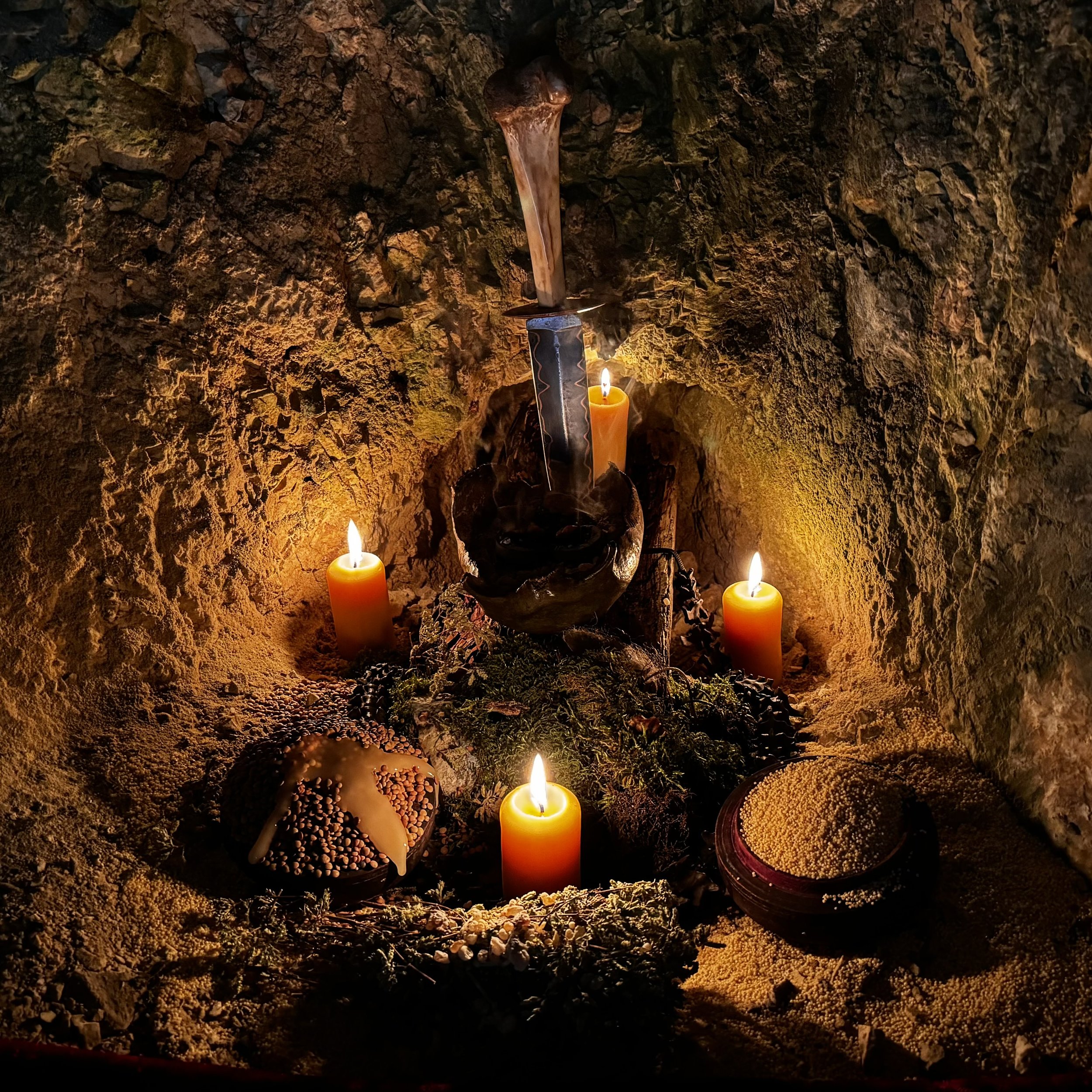Bone-Deep Happiness
I always wanted to defend outposts others have already abandoned.
– Werner Herzog
Here is the preamble to a new essay I am currently writing. It is not about goêtic practice as such but about the practice of finding one’s way as a goês in everyday life. Especially when the latter takes place in a society that has not only considerable reservations but deep-seated prejudices and projections against anyone leading a magical or goêtic lifestyle.
The idea of bone-deep happiness has become a mantra for me, keeping me on the right path when I am facing adversity myself. But it is also a mantra that reminds me of what my work ultimately always should be about: extracting beauty from the storm of life, just as the alchemists extract living essences from the coarsest of substances. The ancient Kabbalists called this process tikkune, the art of discovering divine sparks in all beings and encounters of creation.
Many of us who have experienced serious illness, devastating loss and social exclusion know that this is not an easy path. And that it gets considerably tougher still by leading a magical way of life in a society that has no tolerance for individuals attempting to approach the Daemonic or Divine all on their own.
Once the path to the mysteries led over bridges of initiation. These are now broken and fallen. Most of these trails are buried in time. Today, those who seek the mysteries as individuals are no longer guided by initiatory torches, but are surrounded by scandal.
I wish us all bone-deep happiness.
LVX,
Frater Acher
May the serpent bite its tail.
Preamble
to an essay with the working title
Goêtic Deviance • Goêtic Defiance
Like all craftsmanship, Western magic is obsessed with the what and how of its many practices. For the interested student, this opens up an ocean of primers and manuals to guide the development of their own practice. Within this ocean, the small current of goêtic practice is located between the vast seas of Ancient Greek magic and animistic shamanism as we know it from the peoples of the Eurasian steppes. In previous publications, I have tried to add some fresh water into the practice of this obscure and long-forgotten current.
What the traveller on these seas tends to lose sight of, however, is that magic and goêteia are not just arts of craft (German: Handwerkskunst), but above all arts of life (German: Lebenskunst). At some point, even the proudest ship must drop anchor at a harbour, replenish its supplies and maintain peaceful contact with all those inhabitants who do not practise the occult themselves. The magical art of life must therefore be as much an art of arcane practice as an art of prudent coexistence with those to whom magic seems suspect and leery.
So we would do well to add to our interest in the what and how of magic the what now and how about of prudent coexistence with non-magical people. For once we have entered the magical circle and struck pacts with daemons, we must learn to live in two worlds at once. And if the experience of all our Western magician ancestors is anything to go by, it will not be easy to feel at home either.
Now, these considerations are particularly acute if, like me, you believe that magical practice should help to make us truly happy. The happiness I am talking about here is not a momentary blip, but a bone-deep resonance with life and death. It is a state of being that extends to all areas of our existence and affects us deeply both inside and outside the magical circle. I am talking about bone-deep happiness, the kind that can co-exist with physical ailments and severe loss. The kind of happiness that can no longer be carved out from us, because it continuously flows from the miracle we witness in this living thing called creation.
What good would it do to strive for such a selfish goal – to be happy to the bone – and then to get lost for the world around us? In my eyes, at least, we have a duty to be bone-deep happy, simply because that’s the only way we can make a meaningful contribution to the society of the living. An unhappy person can be a perfect drudge, but they won’t be a good parent. An unhappy person can work incredibly hard and yet their presence will not lift up the sad, the mocked or the lost. And there are so many of those in our time. So it is a most honourable aim to serve them, both in what we do for them and in the way we lift them up by our presence. But we can only do this if we ourselves are not among the sad, the mocked and the lost. For he who drowns does not save the shipwrecked.
Magic, then. Or goêteia, for that matter. Well, the really crazy thing about the idea of magic as a social contribution is that it is precisely its practice that gets us into all sorts of social trouble with our non-magical fellow humans. Even more than the venomic expert, the explosives master, the mercenary or the CEO – all professions that share a difficult to regulate access to power – the unapologetic magician is still relegated to the social periphery of madness and taboo.
The following essay is therefore intended to prepare us for a (social) life after we have survived the first further voyages out into the waters of the occult. Of course, nothing we discuss here will be incomprehensible to the neophyte. These pages are open to all. However, the complexity and painfulness of some of the dynamics described here will only become apparent to those who have experienced them first-hand. So I speak here from one wounded person to another, from one hospital bed to another. Certainly I am not taking on the role of a doctor, but at best that of a cellmate who has had some more time to mark the walls with numbers…
Our common goal is to make the time we spend in social community not feel like a prison stay but like a fulfilling experience among people, many of whom still consider a practical interest in magic an excellent pathological indicator. The truth is, though, that no one in this prison has a key. We are all inmates. Cell to cell, day to day. And our becoming bone-deep happy is a process that has to be lived in the silence of our cells as well as in the shallows and danger zones of the corridors, the washrooms, the canteen and the yard. Good luck and bon voyage! Here’s what I’ve learned so far.
[…]

